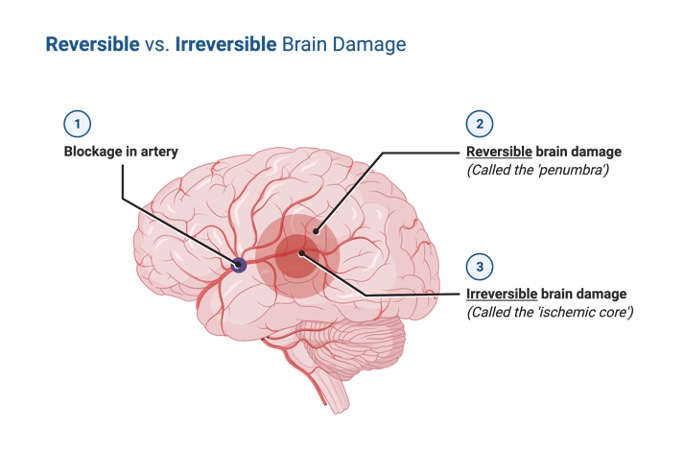Table of Contents
Brain Damage
The brain is a highly specialised tissue that is considerably more complicated than today’s supercomputers. Because of its amazing intricacy, even minor damage can have devastating repercussions.

Brain Damage Causes
The brain may be injured in a variety of ways, and the severity of the damage varies depending on the regions affected and the severity of the damage. The following are some of the causes of brain damage:
Genetics: It’s possible that a defective hereditary gene was handed down to the offspring, preventing the full development of a healthy brain.
Blow: A strong enough blow to the head can overcome the skull’s defences (especially at the temple), allowing structural damage to occur.
Blood Deficiency: A lack of blood to the brain can create serious issues for the brain’s cells. A human can survive without oxygen for four minutes before brain damage gets so severe that survival becomes impossible. A stroke is a condition in which there is a blood shortage in the brain due to a blood clot.
Tumors: Cancer has become a more well-known non-infectious illness in the last decade, and more cases of brain tumours are now being discovered thanks to more advanced procedures. The continuous development of these malignant cells exerts strain on the brain, which can result in a blood clot or cause direct brain damage owing to the tumor’s pressure.
Types of Brain Damage
Aphasia: A form of brain injury that affects the organism’s ability to communicate. This can range from an inability to form a sentence in either voice or writing to an inability to understand speech. The frontal lobe of the brain is the target of this type of injury.
Visual Neglect: Because the portion of the brain that receives visual information from the other eye is not functioning properly, the information collected on one side of the brain is rejected, and the patient can only operate with one eye. Because they are ignorant of the knowledge about the other half of the surroundings, patients may only be able to create half a painting or consume one half of a plate of food.
Amnesia: Also known as retrograde amnesia, this type of memory loss is caused by degeneration or injury to the frontal lobe. When it comes to recalling prior events in their lives, sufferers have memory gaps.
Agnosia: This unusual type of brain damage occurs when sufferers retain full vision (unlike visual neglect), but are unable to relate their surroundings in a quantitative way, i.e. they are unable to recognise a familiar surroundings, person, or object due to a malfunction in recalling past events involving the surrounding, person, or object.
Brain Damage Citations
- A Review of the Molecular Mechanisms of Traumatic Brain Injury. World Neurosurg . 2019 Nov;131:126-132.
- Neurological consequences of traumatic brain injuries in sports. Mol Cell Neurosci . 2015 May;66(Pt B):114-22.
- Brain damage by trauma. Handb Clin Neurol . 2020;168:39-49.
- Figures are created with BioRender.com







